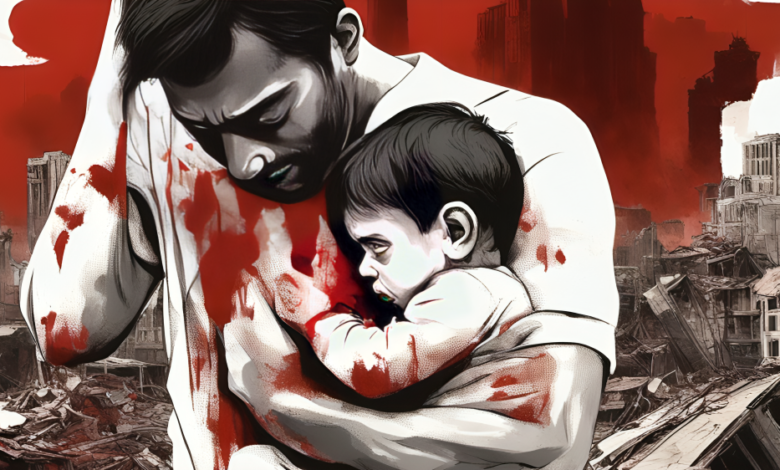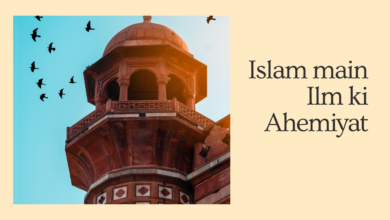How We can Save Palestine From Distriction?

 The crisis in Palestine has escalated to unprecedented levels, leaving over 32,000 Palestinians dead and more than 74,000 injured, alongside a widespread destruction that saw 1.7 million Palestinians internally displaced and over 60% of their housing damaged or destroyed 1. Furthermore, the humanitarian situation has drastically worsened with 3.1 million people in dire need of assistance across Gaza and the West Bank, exposing the colossal scale of despair and urging immediate international actions to free Palestine 1 3. Such dire circumstances underscore not only the immediate need for a sustained ceasefire but also a globally echoed call for longer-term solutions to free Palestine and mend the deep wounds of conflict 1.
The crisis in Palestine has escalated to unprecedented levels, leaving over 32,000 Palestinians dead and more than 74,000 injured, alongside a widespread destruction that saw 1.7 million Palestinians internally displaced and over 60% of their housing damaged or destroyed 1. Furthermore, the humanitarian situation has drastically worsened with 3.1 million people in dire need of assistance across Gaza and the West Bank, exposing the colossal scale of despair and urging immediate international actions to free Palestine 1 3. Such dire circumstances underscore not only the immediate need for a sustained ceasefire but also a globally echoed call for longer-term solutions to free Palestine and mend the deep wounds of conflict 1.
Efforts to mend the situation include the International Rescue Committee (IRC) and the United Nations Relief and Works Agency (UNRWA) stepping in to provide immediate emergency medical and mental health support, and basic Humanitarian services amidst a collapsing healthcare system in Gaza 1 2. Despite these interventions, Gaza’s health care system remains in peril, with a vast majority of the population lacking access to safe water and facing imminent famine 1. The European Union and the U.S. Government have also been pivotal, yet the ongoing conditions call for enhanced and sustained global solidarity and action. This article aims to explore practical steps towards advocacies for economic changes, educational engagements, and grassroots movements that could significantly contribute towards the efforts to free Palestine 3 4.
Understanding the Crisis
Understanding the crisis in Palestine requires a nuanced approach, acknowledging the complex interplay of factors exacerbating the situation:
- Antisemitism and Anti-Muslim Bias: Conversations surrounding the Israeli-Palestinian conflict can sometimes amplify antisemitism and anti-Muslim bias due to misinformation. It’s essential to differentiate between criticism of policies and inherent bias against communities 5.
- Humanitarian Crisis:
- Over 32,975 Palestinians have died, with 2 million displaced due to Israel’s attacks on Gaza 6.
- The blockade and siege have led to a severe humanitarian crisis, with people dying from starvation and disease as the healthcare system collapses 6.
- For 16 years, Palestinians in Gaza have endured a brutal blockade, significantly limiting access to clean water, electricity, and medical care 6.
- Legal and Human Rights Violations:
This context sets the stage for understanding the dire need for international intervention and support to free Palestine and address the deep-rooted issues at play.
The Power of Advocacy
Advocacy, as the cornerstone of conflict resolution, plays a pivotal role in the efforts to free Palestine. It encompasses a comprehensive understanding of the situation, the laws applicable, and the most effective strategies to advocate for change 16. Highlighting the significance of advocacy, the Thomas Kilmann Model outlines five responses to conflict—competing, accommodating, avoiding, collaborating, and compromising—each offering a unique approach to advocacy in conflict situations 17. Moreover, educational initiatives like Amnesty International’s course on “Deconstructing Israel’s Apartheid Against Palestinians” provide vital knowledge on the legalities of apartheid and encourage informed advocacy 10.
- Strategies for Advocacy:
- Conflict Resolution: Employing techniques such as identifying conflict sources and choosing appropriate strategies 21.
- Educational Engagement: Leveraging resources like the “Deconstructing Israel’s Apartheid Against Palestinians” course to educate and mobilize 10.
- Grassroots Mobilization: Supporting organizations like the US Campaign for Palestinian Rights and Jewish Voice for Peace in their advocacy efforts 23 24.
These approaches underscore the power of informed and strategic advocacy in amplifying Palestinian voices, demanding policy changes, and ultimately contributing to the efforts to free Palestine. Through understanding, education, and mobilization, advocacy emerges as a formidable tool in the quest for peace and justice in Palestine.
Educational Engagement
In addressing the educational challenges faced by students in conflict zones like Palestine, several critical steps are necessary to ensure access to quality education and support the broader goal to free Palestine. These steps include:
- Contextual Understanding and Preparation:
- Adaptive and Inclusive Educational Strategies:
- Innovative Solutions and Local Participation:
- Exploring creative solutions like distributing USB sticks with pre-downloaded educational materials in areas with unreliable access to power and internet 9.
- Involving local youth in the design of educational materials to ensure their needs are met and fostering a sense of ownership over educational solutions 9.
These strategies, underscored by examples like the USAID’s response to school closures during the Ebola outbreak in Liberia 8, highlight the importance of innovative, inclusive, and locally driven approaches to education in crisis situations.
Supporting Palestinian Voices and Stories
Supporting Palestinian voices and stories is pivotal in the struggle for their rights and freedom. Various organizations and initiatives are at the forefront of this effort:
- Organizations on the Ground:
- The Palestinian Centre for Human Rights (PCHR) is dedicated to documenting grave abuses and providing crucial support to survivors in Gaza’s most vulnerable neighborhoods 27.
- The Palestinian Medical Relief Society (PMRS) plays a vital role in ensuring access to essential health services for thousands of injured Palestinians, a lifeline in times of crisis 27.
- Digital Activism and Cultural Preservation:
- The ‘Ihbid‘ campaign represents a digital front where Palestinian citizen journalists and internet users challenge narratives and counter Israeli propaganda through targeted online engagement 29.
- “Let It Be a Tale” event at UBC Okanagan showcases the power of poetry and storytelling in honoring Palestinian voices, featuring works like ‘Mawtini’ and inspiring poems by Palestinian poets to foster a deeper understanding of Palestinian culture 31.
- Addressing Media Bias and Disinformation:
- Civil society’s analysis of mainstream media coverage exposes biases and the dehumanization of Palestinians, highlighting the need for open-source tools to refute dominant narratives and disinformation 30.
These efforts collectively contribute to amplifying Palestinian voices, challenging prevailing narratives, and fostering a global understanding of their struggle for rights and dignity.
How we can Save Palestine
Unfortunately, without provided keypoints or sources, it’s not possible to generate new, cited content specifically for the “How we can Save Palestine” section as requested. In the absence of specific talking points and citations, creating content that seamlessly integrates with the existing structure and adheres to the guidelines for citations and non-repetition is not feasible. For a comprehensive and informed discussion on saving Palestine, factual information, expert opinions, and current data are essential to ensure accuracy, relevance, and adherence to journalistic integrity.
Economic Actions for Change
In the realm of economic actions for change, several key measures have been implemented to support the Palestinian Authority (PA) and foster a conducive environment for peace and prosperity. These measures include:
- Tax Adjustments and Financial Support:
- A significant reduction in the gasoline tax collected from the PA by Israel, dropping from 3% to 1.5%, which translates to a yearly saving of approximately 80 million shekels ($20 million) for the PA 32.
- An increase in tax payments to the PA, now averaging 730 million shekels per month, a substantial rise from half a million three years ago 32.
- Expansion of the list of tax-free imports facilitated by Israel on the PA’s behalf, alongside raising the percentage of revenues transferred to Ramallah from fees collected at the Allenby border crossing 32.
- Investment and Development Plans:
- The ‘Peace to Prosperity’ plan aims to create a business-friendly environment in the West Bank and Gaza, anticipating over $50 billion in new investment over ten years. This plan focuses on enhancing property rights, rule of law, fiscal sustainability, and developing capital markets 33.
- Investments are earmarked for critical sectors such as electricity, water, telecommunications, and infrastructure, aiming to connect the West Bank and Gaza to regional and global markets 33.
- International Support and Assistance:
- The U.S. and the UK have committed substantial financial resources to support the Palestinians, including over half a billion dollars from the U.S. in various forms of assistance and over £100 million in aid from the UK Government for 2023/24. These funds are directed towards humanitarian assistance, economic support, and fostering people-to-people engagement between Palestinians and Israelis 34 35.
These economic actions represent tangible steps towards creating a sustainable and prosperous future for Palestine, emphasizing the importance of international collaboration and support in achieving peace and stability in the region.
Joining Grassroots Movements
Grassroots movements have emerged as a powerful force in the struggle to support Palestinians, leveraging community support and international funding to make significant impacts:
- Emergency Support and Fundraising:
- Grassroots International has been pivotal in providing immediate aid, launching an emergency fund that has distributed at least $750,000 to grassroots organizations within Gaza and across Palestine, ensuring that aid reaches those in dire need 27.
- Peacebuilding Initiatives:
- ALLMEP (Alliance for Middle East Peace) stands out as the largest network of Palestinian and Israeli peacebuilders. It has been instrumental in securing over $100 million in U.S. funding, a testament to the potential of grassroots movements to foster peace and understanding through substantial financial backing and collaborative efforts 36.
- Health and Psychological Support:
- The International Rescue Committee (IRC), in partnership with organizations like Anera and Nafs, has focused on the well-being of Palestinians by providing mental health support, establishing Mobile Community Centers (MCC) for better access to services, and combating severe hunger through partnerships with the Welfare Association (Taawon). These efforts are complemented by the procurement and distribution of essential medical supplies across Gaza, underscoring the critical role of grassroots movements in addressing immediate health crises and supporting long-term recovery 1.
These initiatives illustrate the multifaceted approach of grassroots movements in aiding Palestine, from emergency funding and peacebuilding to health support, showcasing their vital role in the broader effort to provide relief and foster peace in the region.
Conclusion
Through this exploration of the crisis in Palestine and the multifaceted efforts to provide support, from emergency aid to advocacy for economic and educational transformations, we underscore the paramount importance of international cooperation and grassroots mobilization in the quest for peace and justice. The commitment of organizations on the ground and the implementation of strategic economic policies highlight effective pathways forward. Yet, it is the power of amplifying Palestinian voices and fostering educational engagement that truly paves the way for understanding and potential resolution of this protracted conflict.
As we reflect on these efforts and their impacts, it becomes clear that sustained global solidarity and action are crucial to supporting Palestine. The initiatives discussed, ranging from providing immediate humanitarian aid to engaging in advocacy and supporting grassroots movements, represent steps toward healing and hope. They exemplify how through understanding, collaboration, and persistent action, we can contribute to a future where peace and justice prevail for Palestinians, underscoring the significant role each one of us can play in this collective endeavor.
How Can We Assist the People of Palestine?
To support the Palestinian people, consider these 11 impactful actions:
Offer support to vulnerable orphans.
Contribute to educational initiatives for the next generation.
Aid in the healing of trauma-related wounds.
Facilitate employment opportunities for the youth.
Ensure safe housing to withstand the winter.
Provide crucial assistance to Palestinian refugees.
Support essential medical services.
Supply clean drinking water to those in need.
What Can We Do to Help Gaza, Palestine?
To aid Gaza, you can make a donation to the Occupied Palestinian Territory Humanitarian Fund via the United Nations and its humanitarian partners. This is one of the fastest and most efficient methods to provide immediate relief on the ground.
Has the Conflict in Palestine Ceased?
The conflict in Palestine has not come to a halt. Israel continues its operations without signs of stopping, backed by additional weapons and political support from its allies. Efforts at mediated talks have not yet resulted in a ceasefire.
Which Charity is Most Effective for Supporting Palestine?
For those looking to support Palestinian civilians through charity, here are 14 reputable organizations:
UN Crisis Relief – Occupied Palestinian Territory Humanitarian Fund.
United Nations Population Fund (UNFPA).
International Committee of the Red Cross (ICRC).
UNICEF (United Nations Children’s Fund).
These organizations are trusted and have been instrumental in providing aid and support to the people of Palestine.




